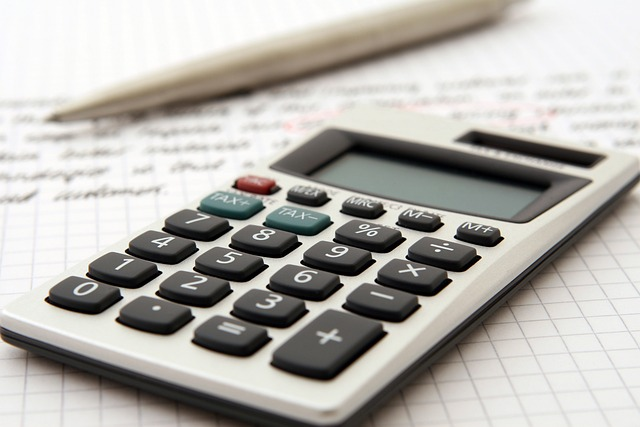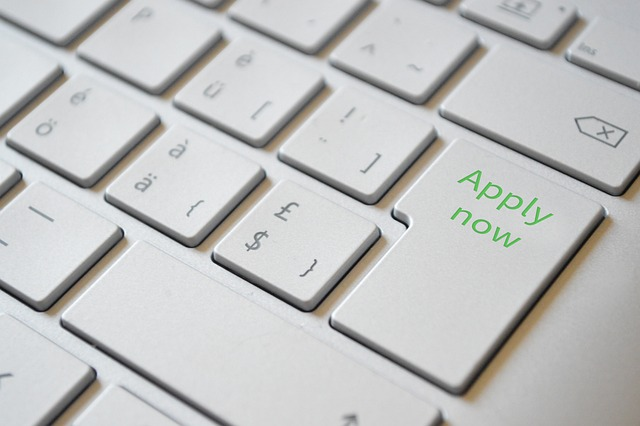What is the SBA?
The US Small Business Administration (SBA) is a federal government agency dedicated to promoting small businesses. The SBA provides counseling, contract services, and capital for small business owners.
One of the SBA’s primary goals is to assist American small businesses in obtaining the funding they need for operations and growth. The SBA administers and oversees the SBA loan program to help ensure funding is available for eligible businesses.
What are SBA Loans?
The SBA loan programs consist of several small business financing packages collectively called “SBA loans.” There are several SBA-guaranteed loans to consider for your business.
SBA 7(a) Loans
7(a) loans are the most common and versatile package in the SBA loan program. Borrowers can get up to $5 million for various purposes, such as buying real estate, working capital, purchasing equipment, machinery, and inventory, or even refinancing business debt. Terms go up to 25 years for real estate, 7 years for lines of credit, and 10 years for all other loans.
SBA 504 Loans
The CDC/504 loan is available to small business owners needing to purchase a fixed asset, such as real estate, equipment, or heavy machinery. A specific component of the loan is working with a Certified Development Company (CDC).
CDCs are nonprofit organizations that promote economic and job growth in underserved communities. The SBA partners with CDCs, who provide a portion of the 504 loans. Borrowers can get up to $5.5 million per project, not to exceed $16.5 million for three projects. Terms go up to 25 years for real estate and 10 years for all other projects.
Economic Injury Disaster Loans (EIDL)
EIDL loans are for small businesses that suffered economic hardship due to natural disasters like hurricanes, tornadoes, and earthquakes. The program was expanded during the Covid-19 pandemic to include loan amounts up to $2 million.
While Covid-19 EIDL loans are no longer available, the borrowing amount increase remains. To qualify, a business must be in a declared disaster area. Loan terms go up to 30 years, and repayment is deferred for the first 12 months.
SBA Microloan
The SBA microloan provides up to $50,000 for small business owners. The program is the only SBA loan package specifically for startups and new businesses. All other SBA loans are for established companies, and most SBA lenders require at least two years of business history. Terms go up to 6 years at the most.
How does the SBA Loan Program work?
SBA loans work like traditional business financing. The business owner applies to an approved SBA lender, which is one of three organizations: a commercial bank, a credit union, or an alternative lending facilitator like United Capital Source.
The biggest difference is that the SBA guarantees a portion of SBA loans (up to 90%). The guarantee provides security for lenders, who can then offer higher borrowing amounts at lower interest rates and longer repayment terms.
Most SBA loans require a down payment, usually 10%-20%. Loans under $25,000 don’t require Collateral, while loans over $350,000 are collateralized to the “maximum extent possible.” Collateral requirements for loans between $25,000-$350,000 are at the lender’s discretion.
All SBA loans require a personal guarantee. The SBA or lender may also file a UCC blanket lien on your business when borrowing larger amounts.
How do I choose an SBA Loan?
Choosing an SBA loan depends on how you plan to use the loan proceeds and how much money you need. Another factor to consider is how quickly you need the funds.
Working Capital Needs
Working capital refers to the money used for day-to-day operations. Examples include payroll, rent, or purchasing inventory. SBA loans to consider for working capital include 7(a) loans, CAPLines of credit, and SBA microloans.
Commercial Real Estate
Purchasing commercial real estate is a major expense. The SBA 7(a) loan provides funding for commercial real estate. CDC/504 loans also provide funding for commercial real estate, but your project will need to achieve job creation and public policy requirements from the CDC you work with.
Equipment and Machinery
Business equipment and machinery can be a significant difference-maker for your company. Like real estate, these fixed assets usually come with a massive price tag. Consider the 7(a) or 504 loans for equipment purchases.
Refinancing Business Debt
The 7(a) loan is the best option to refinance business debt.
Export Business
The SBA helps promote export businesses with specialized subsets of the 7(a) loan. The export and express export loans can help small businesses grow their exports and compete with larger shipping and freight companies.
Urgent Funding Needs
Express SBA loans provide a quicker turnaround on approval and funding time. The tradeoff is that the SBA guarantee is for a lower percentage, so interest rates tend to be higher. The maximum loan amount for SBA express loans is $500,000.
How do I qualify for an SBA Loan?
The specific qualifications depend on the SBA loan you’re applying for and the SBA lender’s requirements. You’ll also need to meet the SBA’s basic eligibility requirements.
SBA Eligibility Requirements
Businesses applying for an SBA loan must meet the following requirements:
- Be a for-profit business.
- Operate and be physically located in the US or its territories.
- Meet the small business size standards as defined by the SBA.
- Have the cash flow to handle loan repayments.
- Not be eligible for or receiving loan funds elsewhere (SBA loans are “last resort financing”).
Small business owners must also meet certain conditions, such as:
- Have invested time and money (equity) into the business.
- Possess a commitment to success and relevant management experience.
- Provide a personal statement attesting to having good character.
- Cannot be incarcerated, on parole, or on probation.
- Cannot be currently under indictment or other forms of criminal charges.
- Cannot have previously defaulted on federal loans, such as student loans.
- Must own at least 20% of the company.
Credit Score
The SBA does set a specific credit score requirement, leaving each lender to set its own. In general, you’ll need a credit score between 650-700. Some lenders might require a credit score of 680 at a minimum. At UCS, businesses we work with that get approved have a credit score of 650+.
Time in Business
Most SBA lenders require at least two years in business. Some commercial banks might require three years. SBA microloans and express loans usually have looser time in business requirements.
Annual Revenue & Cash Flow
SBA lenders like to see healthy revenue when underwriting an SBA loan request. At UCS, most businesses we work with on SBA loans have an annual revenue of $350k+.
Almost more important than revenue is your cash flow. Cash is the lifeblood of any business, and healthy cash flow signals a strong performance. Moreover, the SBA specifically requires lenders to evaluate cash flow as the primary means of repayment. If a lender’s financial review discovers cash flow issues, it must deny the loan request.
Restricted Industries
The SBA does not approve loans for the following businesses and industries:
- Real estate investment firms.
- Companies engaged in speculation.
- Gambling businesses such as casinos.
- Rare coin and stamp dealers.
- Multilevel marketing (pyramid scheme) businesses.
- Religious businesses, charities, and other nonprofits.
- Government agencies.
- Lending institutions.
What documentation is required for an SBA Loan application?
One of the more challenging aspects of applying for an SBA loan is gathering the required documents. The SBA and most SBA lenders require extensive documentation. The specific documents required depend on the lender and loan. However, it would still be a good idea to prepare the following.
Personal Statements
Personal statements to prepare for your loan include:
- Personal tax returns for the previous three years.
- Background statement.
- Records of previous loans.
- Names and addresses of your partners.
- Resumes for all business owners.
- SBA Form 912: Statement of Personal History.
- SBA Form 314: Personal Financial Statement.
Business Statements
- Profit and Lost Statement (current to within 90 days of the loan application).
- Balance sheet.
- Cash flow statement.
- Business tax returns (up to 3 years, if available).
- The business certificate and license.
- Deeds or leases for any business property.
- Records of previous business loans.
- Lists of debts & assets, including A/R and A/P aging reports.
- Key team member resumes.
- Your business plan.
Projected Business Financial Statements
- Projected income, profit and loss, and cash flow statements for the next 1-5 years.
- Written plan on how to achieve projected financials.
How to apply for an SBA Loan:
Once you’ve prepared your documents, you can select an SBA lender and begin the application process. United Capital Source can help you apply to an SBA-approved lender following these steps.
Step 1: Ensure You Qualify
You’ll need a credit score between 650-700 and a healthy, consistent cash flow. How you intend to use the money plays a significant role as well. You’ll need a detailed plan of how the funds will help you invest in and grow the business.
Step 2: Gather Your Documents
Be prepared to provide the documents listed in the previous section. Our loan experts can help you if you need more guidance. You should also include the UCS one-page application.
Step 3: Fill Out the Application
You can begin the application process by calling us or filling out our one-page online application. Either way, you’ll be asked to enter the information from the previous section along with your desired funding amount.
Step 4: Speak to a Representative
Once you apply, a representative will reach out to you to explain the repayment structure, rates, and terms of your available options. This way, you won’t have to worry about any surprises or hidden fees during repayment.
Step 5: Receive Approval
SBA Loans through our network generally take 3-5 weeks to process. Once approved and your file is closed, funds should appear in your bank account in a few business days.
What are the advantages of SBA Loans?
The SBA loan program offers several benefits compared to other small business loans.
SBA Guarantee
Depending on the loan, the SBA guarantees anywhere from 50%-90% of the loan amount. The backing from the government agency gives lenders more flexibility in underwriting and funding loans.
Maximum Loan Amounts
The most common loan, the SBA 7(a), carries a maximum loan amount of $5 million. CDC/504 loans can go up to $16.5 million for three or more projects. There are few small business loans available that offer those amounts.
Interest Rates
The SBA sets caps on how much interest a lender can charge. Depending on the loan amount and lender, interest rates range anywhere from 5%-15%. EIDL loans, which are only available in the case of a disaster, go as low as 2.75%, but that’s a specialized loan program.
Repayment Terms
SBA real estate loans carry repayment terms of up to 25 years. Most other loans have repayment terms of 10 years. The longer you have to repay the loan, the lower your monthly payment. With a lower payment, you’ll have more cash flow available to support your business.
What are the disadvantages of SBA Loans?
While these loans offer many benefits, you should be aware of the drawbacks.
Difficult to Qualify
In theory, the backing of the SBA should make the loan program easier to qualify for. In some ways, that’s true, but you’ll still need a good to excellent credit score, strong revenue, and two years in business (except for the Microloan). Business owners who are still building their personal and business credit likely won’t qualify for an SBA loan.
Extensive Documentation
As new noted earlier, you’ll need to prepare a lot of paperwork for your SBA loan application. Compiling the necessary forms and documents can be tedious and time-consuming.
Long Waiting Period & Funding Time
It can take anywhere from a few weeks to 120 days to finalize an SBA loan. Even for the express loan, which the SBA approves within 36 hours, it could take weeks for the lender to close the loan. For comparison, some alternative online lenders can finalize and fund a loan the next day or even the same day.
Requires a Down Payment
Most loans through the SBA require a down payment. While the 10% requirement is lower than some lenders that might require 20% (especially for real estate loans), it’s still a significant cost to factor in.
Pros & Cons
Here’s a pro and con list for a quick summary.
Pros:
- SBA backs a portion of the loan.
- High borrowing amounts.
- Low interest rates, capped by the SBA.
- Long repayment terms & lower monthly payment amount.
Cons:
- Difficult to qualify.
- Requires extensive documentation.
- Could take up to 120 days to fund a loan.
- You’ll most likely need a down payment of 10% of the loan amount.
Frequently Asked Questions
Here are the most common questions about applying for an SBA loan.
What are the costs of an SBA Loan?
One of the benefits of SBA loans is they typically cost less than other forms of financing. But you’re still taking out a loan, which will cost money.
Interest rates for 7(a) loans are tied to the prime rate. Usually, the interest rate is the prime rate + the lender’s spread. The SBA sets a cap on what lenders can charge, though.
The maximum you’ll pay for fixed-rate loans is the prime rate + 8%. For variable-rate loans, the maximum interest rate is prime + 4.75%.
Most SBA loans include a guarantee fee, which ranges from 0.25% to 3.75%, depending on the loan type, amount, and lender. The fee only applies to the percentage of the loan the SBA guarantees, not the total loan amount.
Lenders have the discretion to charge some additional loan fees, such as:
- Credit check fee.
- Packaging fee.
- Closing cost.
- Appraisal fees.
However, the SBA does not allow businesses to charge extraneous loan fees such as application fees and origination fees. Lenders can only charge prepayment fees on loans with terms of 15 years or more.
While down payments are not an expense over and beyond the borrowing amount, it is an expense you must account for when applying for an SBA Loan. The SBA prefers to work with business owners willing and able to invest equity in their company.
Most lenders require a down payment between 10%-20%. In addition, the SBA also requires the lender to put up capital in the loan. In this way, all three parties – the borrower, the SBA, and the lender – share some risk with the loan.
How do I choose an SBA Lender?
Choosing an SBA lender largely depends on which loan you’re requesting. Most approved SBA lenders offer the 7(a) loan. For 504 loans, you must work with a CDC, which will sometimes provide a list of lenders. SBA microloans are only available through SBA intermediary lenders. You must apply directly to the SBA for EIDL loans.
The other two critical considerations for SBA lenders are the lender’s specified qualifications and their timeline to finalize and fund a loan. Some SBA loan packages can take up to 120 days to close. Commercial banks tend to take longer than alternative online lending platforms.
You can review our list of the “Best SBA Lenders” to get an idea of their differences. In addition, the SBA provides a Lender Match tool to help small business owners identify lenders in their area.
Is it hard to get an SBA Loan?
Obtaining an SBA loan might be a challenge for some business owners. Most lenders require an outstanding credit score, sterling financials, and an established business.
Furthermore, the process takes a long time. You’re applying for a loan to solve a business need or take advantage of a new opportunity. Some issues and opportunities are more urgent than others, so you must determine if your business can handle the lengthy approval and funding times.
Can I get an SBA Loan with bad credit?
No, unfortunately, SBA loans are only available to small business owners with good to excellent credit. You could consider a bad credit business loan if you need financing help.
While the interest rate is higher on bad credit loans, it could provide the necessary funds to maintain or grow your business. You could use this type of financing as a bridge loan while you build your credit to qualify for an SBA loan. There are still many options available to you, even if you have poor credit.
What are my options if I’m denied for an SBA Loan?
While the SBA loan program is the most advantageous small business financing option, there are plenty of other options. If you didn’t qualify for an SBA loan, or you need urgent funding, consider one of these loan options:
- Working capital loans.
- Equipment financing.
- Merchant cash advance.
- Accounts receivable factoring.
- Revenue-based financing.
- Business lines of credit.
- Business term loans.
SBA Loan Application – Final Thoughts
There’s no way around the fact that the SBA loan application process is complex. However, you can minimize the stress of applying with a bit of upfront research and legwork.
The first step is identifying the SBA loan that best meets your needs. Then you should find lenders that offer that product and review their timeline for funding and requirements. You might also want to look at customer reviews and their online reputation if you’re trying to decide between lenders.
Once you find a lender that works for your needs, begin assembling your paperwork. This part of the process can save time and headaches down the line. Once you have the necessary documents prepared, follow the application instructions for the lender, and you should be well prepared for the rest of the process.
Contact us if you need additional guidance or are ready to apply. Our loan executives can help you apply to the right SBA lender for your business needs.












